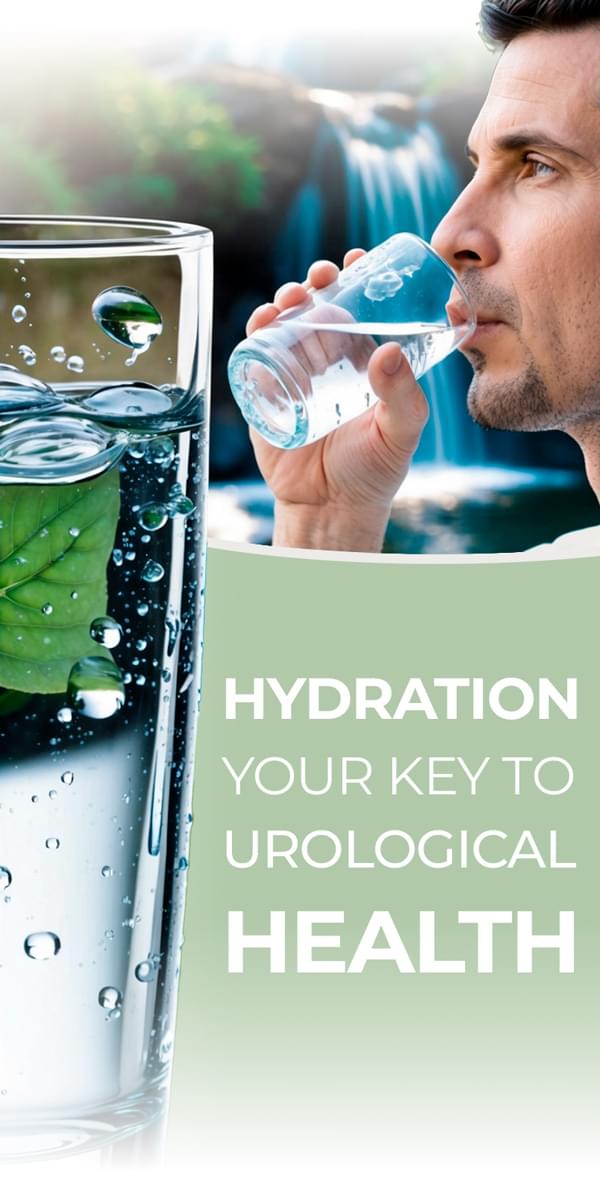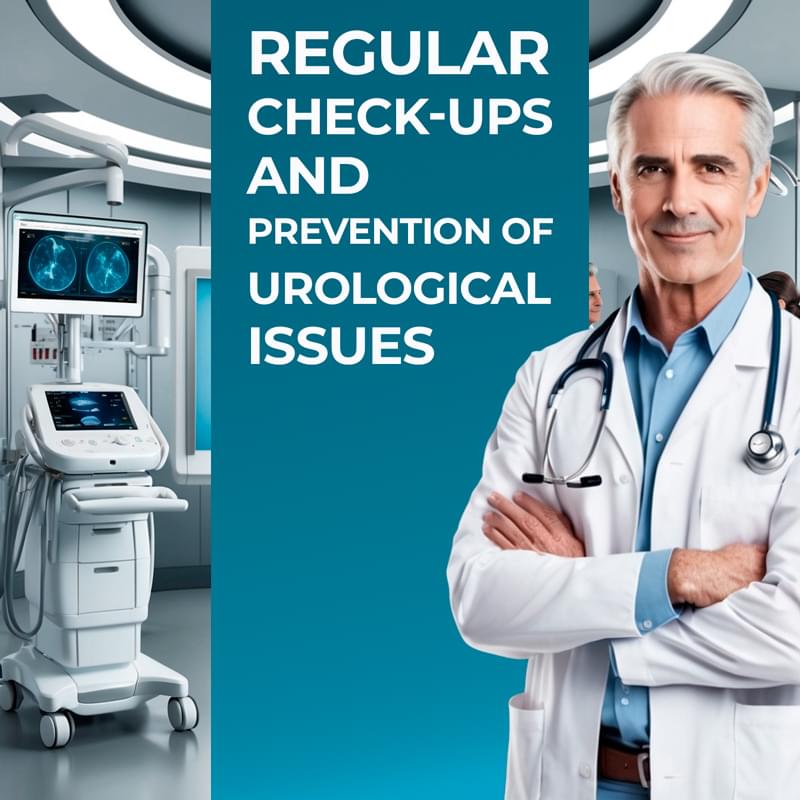Brian Charles Bennett urologist
Dr. Brian C. Bennett, MD, is a highly experienced urologist based in Raleigh, North Carolina. He has a distinguished career in the medical field, specializing in the diagnosis and treatment of urological conditions.
Professional Specialization:
Dr. Bennett specializes in urology, focusing on various aspects of urinary tract health and male reproductive system disorders. His expertise includes the treatment of conditions such as kidney stones, urinary tract infections, prostate issues, and more complex urological surgeries.
Professional Experience:
- Urology Specialist: With over 35 years of experience in urology, Dr. Bennett has treated a wide range of urological conditions, employing the latest medical advancements and technologies.
- Affiliations: Dr. Bennett is affiliated with multiple hospitals and medical centers in Raleigh, NC, where he collaborates with other healthcare professionals to provide integrated care to his patients.
Dr. Bennett's Tips for Maintaining Optimal Urological Health
Embrace Hydration: Your Key to Urological Health
Maintaining optimal urological health is intricately linked to how well we hydrate our bodies. Water, the elixir of life, plays a pivotal role in ensuring the efficient functioning of our urinary tract system. Adequate hydration aids in diluting urine, which in turn minimizes the risk of kidney stones and helps flush out toxins that could lead to urinary tract infections (UTIs). It's a simple yet profound physiological necessity; by increasing fluid intake, we enhance our body's capability to maintain a clean and clear urinary pathway.
The science behind hydration's impact on urological health is compelling. Water consumption directly influences urine volume and concentration. An optimal fluid intake results in lighter-colored urine, indicating a well-hydrated state, while darker urine suggests dehydration. The kidneys regulate this balance meticulously, conserving or excreting water as needed. However, when dehydration occurs, the reduced urine volume and higher concentration can irritate the bladder and create an environment conducive to the development of UTIs and kidney stones.
Experts recommend consuming at least eight 8-ounce glasses of water daily, though individual needs may vary based on factors like body size, activity level, and climate. It's worth noting that certain conditions, such as kidney disease, may require adjustments to this recommendation, underscoring the importance of personalized medical advice. Here is a simple guide to help track your hydration levels:
| Urine Color | Hydration Level |
|---|---|
| Pale Yellow | Well Hydrated |
| Dark Yellow/Amber | Dehydrated |
| Transparent Yellow | Hydrated |
| Brown/Auburn | Severely Dehydrated or Liver Issue |

Achieving and maintaining hydration is not just about drinking water; it's about understanding and listening to your body's needs. It is crucial for individuals to monitor their hydration status, especially during intense physical activity or in high-temperature environments. Drinking water before, during, and after exercise, as well as incorporating water-rich foods into the diet, can significantly contribute to urological health and prevent the complications associated with dehydration.
The Diet-urology Connection: Foods to Embrace and Avoid
Understanding the vital link between diet and urological health is paramount, as highlighted by experts in the field, including Dr. Brian Bennett, a notable urologist. An optimal diet for urological wellness focuses on integrating foods rich in antioxidants, vitamins, and fibers while minimizing the intake of those that can exacerbate urological issues. Foods high in antioxidants, such as berries, nuts, and green leafy vegetables, have been shown to support the urinary tract's health by reducing inflammation and preventing cellular damage. Additionally, the inclusion of whole grains and legumes in the diet contributes to overall urological health by facilitating regular bowel movements, thereby reducing the pressure on the bladder and improving urinary function.
Conversely, certain foods and substances are known to be detrimental to urological health and should be avoided. High-sodium diets can lead to the exacerbation of conditions such as kidney stones and hypertension, which in turn can negatively impact urological health. Red meat and processed foods, rich in saturated fats, have also been linked to an increased risk of urological disorders, including prostate cancer. Moreover, caffeinated and alcoholic beverages act as diuretics, leading to dehydration, which can irritate the bladder and exacerbate symptoms in those with urinary tract issues. Dr. Bennett and other urologists alike stress the importance of moderating the consumption of these substances to maintain urological wellness.
It is essential to adopt a holistic approach by not only focusing on foods to embrace and avoid but also understanding how overall lifestyle choices, including diet, affect urological health. The guidance from professionals such as Dr. Brian Bennett, emphasizes the importance of personalized dietary strategies catering to individual health needs and conditions. Regular consultations with healthcare professionals can provide tailored advice, ensuring that dietary habits contribute positively to urological health and prevent potential issues. This integrative approach underscores the significance of diet in maintaining urological health, advocating for informed dietary choices as a cornerstone of preventative healthcare.
Keeping Active: Exercise's Role in Urological Wellness
Physical activity plays a pivotal role in the maintenance of urological health, a truth underscored by leading experts in the field such as Brian Bennett, urologist with years of experience. Engaging in regular exercise contributes significantly to the overall functionality of the urinary tract system. This is particularly evident in its ability to foster healthy blood flow, which is crucial for the effective functioning of the kidneys and the timely elimination of toxins from the body. Moreover, activities such as pelvic floor exercises have proven particularly beneficial, enhancing urinary continence and mitigating the risks of disorders like incontinence and overactive bladder syndrome.
The mechanics behind exercise’s beneficial impact involve multiple physiological systems working in harmony to bolster urological health. For instance, weight management through regular physical activity reduces the pressure on the pelvic floor muscles, thereby reducing the risk of stress urinary incontinence, a condition prevalent in obese and overweight individuals. Furthermore, exercise-induced hormonal balance plays a key role in maintaining the health of reproductive organs, pointing to a comprehensive benefit that transcends mere calorie burning. It's essential, as pointed out by experts like Bennett, to embrace a tailored exercise regimen that addresses individual urological health needs while promoting overall well-being.
Incorporating exercise into one’s daily routine need not be daunting. Simple activities such as walking, cycling, and swimming are highly effective in promoting urological health. The consensus among healthcare professionals, including those as experienced as Brian Bennett, urologist with a deep understanding of urological pathologies, is clear. Regular physical activity is indispensable in the prevention and management of common urological conditions. It stands as a cornerstone of a holistic approach to urological health, underscoring the necessity of an active lifestyle in achieving and maintaining optimal urological function.
Regular Check-ups: Prevention Better Than Cure
In the realm of urological health, the axiom 'an ounce of prevention is worth a pound of cure' could not be more pertinent. Regular consultations with healthcare professionals, including experts like urologist Brian Bennett, play a pivotal role in maintaining urological wellness. These periodic assessments serve not just as a preventive measure but as a strategic approach to early detection of potential urological issues, when they are often most treatable. Proactive screenings, such as for prostate health or bladder function, underscore the importance of preventative care in circumventing the development of serious conditions.
In the realm of urological health, the axiom 'an ounce of prevention is worth a pound of cure' could not be more pertinent. Regular consultations with healthcare professionals, including experts like urologist Brian Bennett, play a pivotal role in maintaining urological wellness. These periodic assessments serve not just as a preventive measure but as a strategic approach to early detection of potential urological issues, when they are often most treatable. Proactive screenings, such as for prostate health or bladder function, underscore the importance of preventative care in circumventing the development of serious conditions.
Moreover, during these consultations, patients have the unique opportunity to discuss changes in their urinary health, ask pertinent questions, and receive personalized advice tailored to their specific needs. This dialogue is crucial for educating individuals on how lifestyle choices impact urological health. Through knowledgeable guidance on diet, exercise, and stress management, patients can make informed decisions to enhance their quality of life. Such interactions demonstrate the symbiotic relationship between patient engagement and preventative care in fostering urological health.
The significance of regular check-ups extends beyond individual health benefits to contributing to advancements in urology. Data garnered from these visits provide invaluable insights into the prevalence of urological conditions, facilitating early interventions and informing future research. This collaborative patient-doctor relationship, exemplified by practitioners like Brian Bennett, is foundational in the ongoing quest to improve urological health outcomes.
In essence, the commitment to regular urological check-ups is a testament to the importance of preventative health measures. By prioritizing these evaluations, individuals not only take proactive steps towards safeguarding their urological health but also contribute to the broader goal of enhancing urological care. Embracing this preventive approach can lead to significant benefits, including improved early detection rates, personalized care strategies, and ultimately, a higher standard of urological health and well-being.
Articles
Know Your Body: Recognizing Urological Health Red Flags
Understanding the early warning signs that signal potential urological issues is paramount in maintaining optimal health. Key indicators such as changes in urinary patterns — including an increased urgency, frequency, or the presence of dysuria (painful urination) — serve as preliminary alerts. Furthermore, the detection of hematuria (blood in the urine) or a decrease in urine flow can indicate more serious underlying conditions. It's imperative to have these symptoms evaluated by healthcare professionals, like a urologist, to diagnose and address possible urological disorders effectively.
Maintaining a vigilant approach towards these symptoms can significantly impact the management and outcome of urological conditions. For instance, early detection of prostate abnormalities through attention to urinary symptoms can facilitate timely intervention, potentially averting the progression of conditions that might require more aggressive treatments. Brian Bennett, a reputable figure in the field of urology, emphasizes the importance of patient education in recognizing these cardinal signs, underscoring the crucial role self-awareness plays in preventative health strategies.
Engaging in active dialogue with healthcare providers about these symptoms and participating in regular health screenings can greatly enhance early detection and treatment outcomes. It is also essential for individuals to adopt a proactive stance towards their health, integrating both physical and behavioral health practices to support urological well-being.
| Key Red Flags in Urological Health | Description |
|---|---|
| Changes in Urinary Patterns | Increased urgency, frequency, or pain during urination. |
| Hematuria | Presence of blood in the urine. |
| Decrease in Urine Flow | Reduction in the strength or volume of urine flow. |
Brian Bennett, a urologist who advocates for comprehensive patient education, supports this integrated approach, recognizing that informed individuals are more likely to detect changes early and seek appropriate care promptly.
Stress Management: Its Impact on Urological Health
The nexus between stress and urological health is an area of increasing interest within the medical community. Chronic stress activates the sympathetic nervous system, leading to a cascade of physiological effects that impact the urological system. This activation results in alterations in hormone levels, increased blood pressure, and changes in voiding patterns, which can exacerbate conditions such as urinary tract infections (UTIs), overactive bladder, and interstitial cystitis. Proactively managing stress through mindfulness, meditation, and relaxation techniques can mitigate these adverse effects, promoting a harmonious balance within the urological system.
Furthermore, the impact of stress on the body's immune response plays a critical role in urological health. During periods of heightened stress, the body's ability to fight off infections diminishes, making the urinary system more susceptible to bacteria and, consequently, infections. By incorporating stress reduction strategies into daily routines, individuals can enhance their immune system's efficacy, reducing the likelihood of UTIs and other urological complications.
Exercise, beyond its general health benefits, has been shown to specifically alleviate stress and improve urological health. Regular physical activity can help regulate the body's stress hormones, such as cortisol and adrenaline, and stimulate the production of endorphins, the body's natural painkillers and mood elevators. Engaging in low-impact exercises like walking, swimming, or yoga can be particularly beneficial for those with existing urological conditions, as these activities promote blood flow to the urological organs, aiding in their function and healing.
Lastly, the importance of seeking professional help cannot be overstated. Individuals experiencing chronic stress and its urological manifestations should consult with healthcare providers to develop a comprehensive, personalized care plan. Through a combination of medical intervention and lifestyle modifications, it is possible to manage stress levels and minimize its impact on urological health, ultimately enhancing overall well-being and quality of life.
Physical Conditions
Psychological Factors
Lifestyle Factors
Relationship Issues
Location
Associated Urologists Of North Carolina
Cary, NC, 27511
160 MacGregor Pines Drive, Suite 205
Tel : +1 (919) 758-8677












